Welcome to the K'Ho Coffee Farm and Roastery, where exceptional coffee is the norm. The farm's success can be attributed to an enterprising family and a treasure trove of heirloom Arabica grown from seeds brought to Da Lat over a century ago.
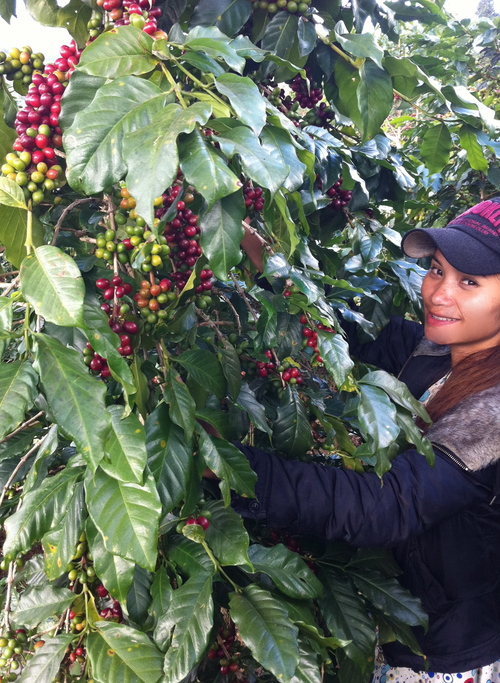
A history
The garden cafe at K'Ho Coffee Farm is bordered by buzzing coffee trees and is nestled on the slopes of Langbiang Mountain. The roots, deep in the soil, have a long history dating back to the late 1800s. The French were the first to introduce Arabica seeds from Africa to Vietnam. In 1912, the colonists established a resort town for themselves in Da Lat City, ten kilometers away, and enrolled the ethnic K'Ho minority in the area to care for their coffee trees. The K'Ho had effectively established themselves as Vietnam's first coffee farmers.
The K'Ho (or Ko Ho) are a nomadic ethnic group in Vietnam, one of the country's 54 ethnic groups. Traditionally, the K'Ho erected their hamlets in distant highland areas. Families from the K'Ho tribe live primarily off the land and have a rich culture of artisan weaving, storytelling, and singing. Before the French arrived, the K'Ho were cultivating the fertile land near Langbiang Mountain, according to maps.
Brai Co Lieng, a K'Ho farmer, got his hands on Arabica seeds from French coffee bushes in the 1940s and sowed them at his family farm at the mountain's base. The Co Lieng family kept the crop alive, but it took many years for fourth-generation coffee farmer Rolan Co Lieng to figure out how to turn it into a profitable enterprise. Rolan formed the K'Ho Coffee cooperative in 2012 with the support of her family and husband, an agricultural engineer from the United States. It grows, roasts, and sells coffee descended straight from Old World coffee seeds.
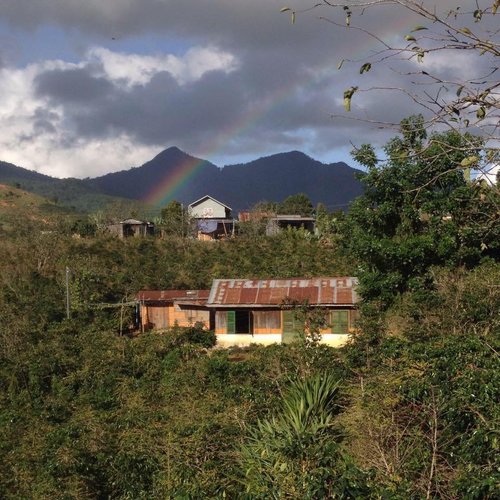
Apprising the family business
The first thing you'll notice when you arrive at the K'ho farm in Bonneur'C Village is how rustic it is. Outside the gift shop, coffee seeds dry on screens. Inside, ethnic linens, colorful crafts, and bundles of fragrant beans are strewn across the shelves. With a view of Langbiang's mountain farms, a wooden cottage in the garden provides espresso and pour-over coffee.
Rolan's family, which includes her brother DuLick Moul, runs the business out of their home. The cooperative employs 50 ethnic K'Ho families. They grow, process, and sell exceptional Arabica coffee together, utilizing exclusively organic farming methods. Farmers obtain a higher income from K'Ho Coffee's roasting and selling than they would via a middleman, and they commit to using agroforestry technology. It's a novel approach to an age-old industry, and the proof is in the product. K'Ho coffee consistently scores in the high speciality level in cupping testing (from 84 to 89).
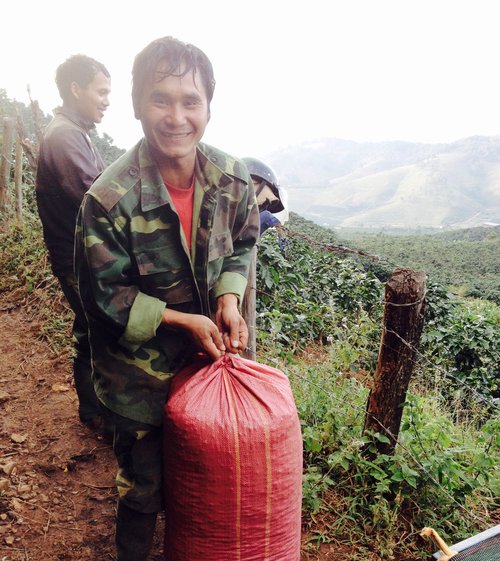
A hands-on approach
The farm's half-day workshops, which follow traditional processing methods from tree to cup, are simply among the best coffee understandings in the country. Prepare to put in some effort, consume copious amounts of coffee, and learn something completely new.

There are at least 15 steps involved in the production of K'Ho coffee. After a quick tour of the farm, go for a walk among the coffee trees to see the berries up close, learn about Arabica varieties, and see agroforestry in action on K'Ho farms. Later, the guide will walk you through each stage of the coffee-making process, using the same methods that the K'Ho have used for years.
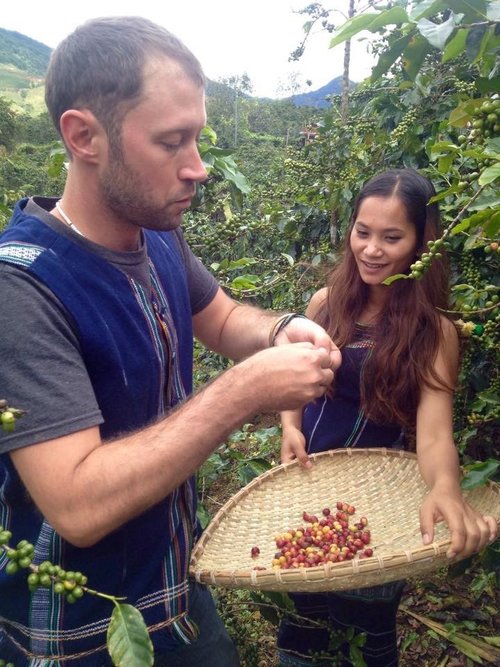
K'Ho Coffee employs three methods of production: washed, natural, and honey. The coffee is hand-selected and harvested, wet-milled on-site, and dried for up to 20 days after fermentation. When the time comes, the chaff is separated by winnowing and the hulling is done manually with a wooden mortar and pestle. Your most difficult task may be sorting the seeds, which requires a keen eye and deft touch. Only the best, unblemished seeds will make it to the enthralling stages of roasting, grinding, and cupping.
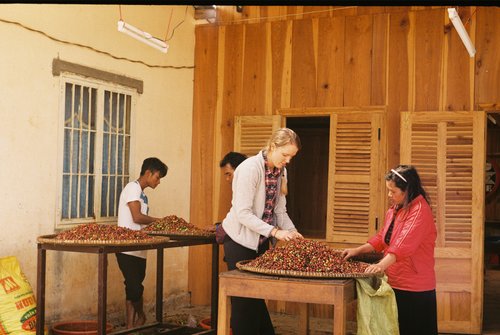
Throughout the workshop, the K'Ho guide provides small insights — a bite of a berry, an explanation of a term — that broaden the audience's appreciation of the work. The tour concludes with some very rewarding brewing and tasting. Carry your cup to the garden cafe to enjoy your coffee in the sun of Dalat.
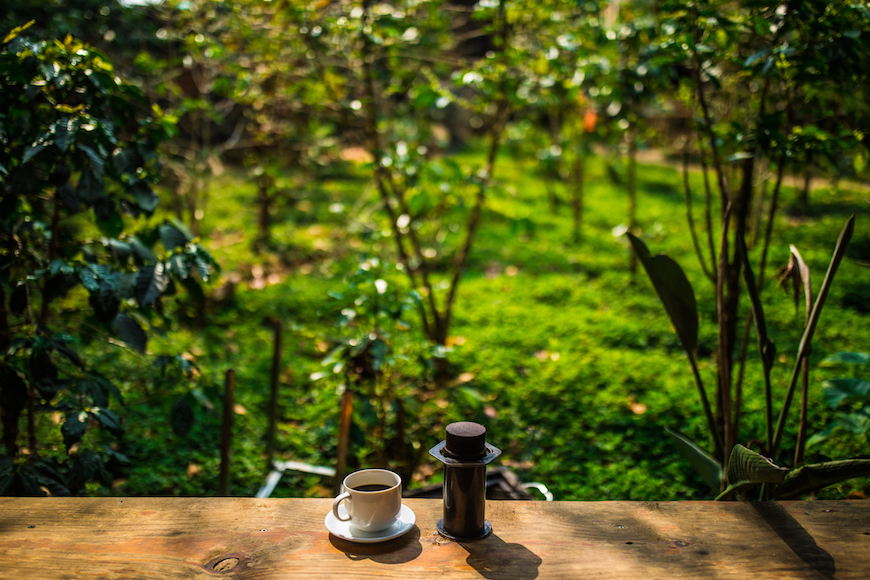
It's enlightening to think that your coffee is sustainably grown, cleanly processed, and supports local farmers. Another thought: it's delectable. You’ll probably want to grab a few bags before you leave.
Photo source: khocoffee.com
----------------------------
Welcome to Viet Center Tourist | Travel agency in Vietnam
An inbound tour operator specializing in providing tour packages in Vietnam, Laos and Cambodia





1 Comment
Comment Infomation